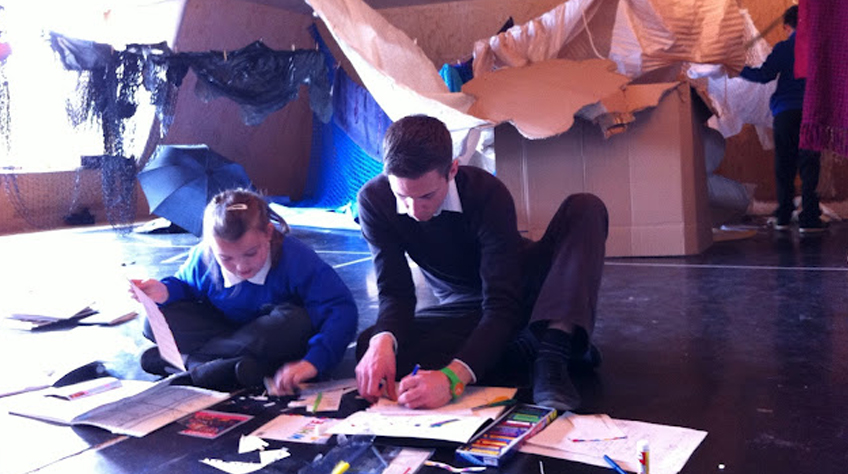DECONSTRUCTING CURRICULUM
“Their hearts and minds are alight.” Graeme, (Educator)
The project gave the educators a space and a place in which they could challenge educational conventions, within the constraints of curriculum requirements. The curriculum was never far from the educators’ minds. But their thinking processes and actions as the project progressed reflect their movement away from the predominant, orthodox ways of working educational institutions and illustrate their search for something more consistent with their values and beliefs.
Some reflections on the changes that took place:
“The primacy of the timetable has gone and its place has been taken by a growing awareness of the day fitting around the children’s needs.” Graeme (Educator)
“Being outside had a positive effect on learning.” "These [first] few days have reinforced my belief in the importance of fun in the learning process: I am always trying to deliver lessons which are fun and exciting, however I’m aware this is sometimes compromised when trying to cover specific learning requirements … " Matt (Trainee educator)
“The learning was fun, I didn’t even realise we were doing maths”. Melissa (Child)
“We gave the students four very different activities to choose from. These were linked to specific learning objectives. We purposely made the learning activities very open to encourage the children to interpret and mould them to their own designs. There was no fixed outcome or set plan we had to follow. My groups spent the first part of the morning thinking and doing role play activities which we planned on using in real life situations. It was very liberating to have the freedom to follow the response of the group and act accordingly. It made the learning very exciting.” Matt (Trainee Educator)
“This is the best day ever” Marley (Child)
“Students really grew in confidence and thrived from being able to use the skills they had practiced. I was struck by how clear it had made the meaning and relevance of the learning. Learning in the classroom can be very abstract but the ability and freedom to use and see learning in situations made the learning completely visible.” Matt (Trainee Educator)
The adults in School Without Walls recognised the children’s competencies, the relevance of contextualised learning, how children’s experiences and exchanges enable them to co-construct their understanding of the world and showed more interest in the processes of learning than predetermined goals.

Graeme and Matt (Educators), analysed the distinctive characteristics of the project:
1. Children having choice in ‘what’ and ‘how’ to learn
2. Exploring and creating new environments
3. Beginning with experience
4. Reflection and collaboration
5. Artist led learning
6. Using children’s 100 languages
7. A chance to forge new identities and
8. ‘Deeper, more personal learning’
We have all invited the children to think and feel more deeply and the New World feel of the project has allowed change to take place not at the relatively superficial level of skills and knowledge but the level of identity, values and beliefs.’ Graeme (Educator)
“An escape from habitual thinking: deconstructing school has removed some of the logistical and environmental cues that perpetuate certain assumptions [e.g. lessons will be 60 minutes (say); children will face the board; lessons will begin with the teacher speaking; learning will be planned by the teacher with an end in mind; children’s work will be recorded in their books.”
“Finally, to allay concerns, the pursuit of creativity does not seem to be hindering progress in the narrow, ‘traditional’ sense. Many parts of the curriculum are being covered simultaneously and literacy and numeracy are being well-served. There is less time available for what looks like learning but I am confident that this is more than outweighed by the depth and intensity of learning. Children may have fewer hours of ‘lessons’ but their hearts and minds are alight.” Graeme (Educator)


